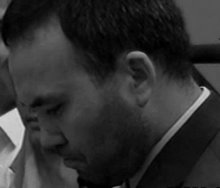
Foreign Minister promises to stand up for Canadians 'in peril' in China
| By Cindy Chan The Epoch Times Ottawa Staff | Apr 27, 2007 |

When Foreign Affairs Minister Peter MacKay visits China early next week, the plight of a Canadian citizen who was recently sentenced to life in prison in China under suspect conditions is sure to be on the agenda.
MacKay will first travel to Norway and Belgium for high-level meetings before arriving in China. Meetings with Chinese officials will include setting priorities on Canada-China "productive cooperation" in business, according to the official news release.
However, it's a safe bet that human rights will also be discussed, prompted in particular by a Chinese court's sentencing of Huseyincan Celil, a Uighur Muslim rights activist, on April 19 on charges of separatism and terrorism.
The Canadian government maintains there is no solid evidence for the charges against him. However, Chinese authorities refuse to recognize his Canadian citizenship and have continued to deny him Canadian consular assistance.
The issue has been a top item for the Canadian government in talks with the Chinese since Celil was deported to China from Uzbekistan in June 2006. He had been detained in Uzbekistan in March 2006, apparently at the insistence of Chinese authorities. The prime minister has raised his case personally.
In March, MacKay told The Epoch Times that the government would not stop raising cases like Celil's in the face of pressure from some groups worried about upsetting the Chinese.
"It's not about softening the tone; it's about being consistent and being forceful in our representations when it comes to Canadian citizens," MacKay said. "We take the approach where any Canadian that is abroad, that is in peril, that is in need, we'll be there for them."
Besides issuing a strongly worded statement protesting Celil's verdict, MacKay has assured Mr. Celil's wife, Kamila Telendibaeva, that "Canada will continue to pursue justice" for her husband.
Appeal for 15 Canadian Family Members
Other Canadians also impacted by human rights abuses in China raised their voice this week on the eve of MacKay's trip.
On Wednesday, four Chinese-Canadians spoke at a press conference at Parliament Hill outlining the persecution their family members have faced in China over their belief in Falun Gong, a spiritual practice that is brutally repressed in China by the ruling communist party.
Montreal resident Yao Lian said Falun Gong practitioners in China are "automatically labelled as 'criminals' or 'class enemies' by the regime and do not have any safety." Her husband Ma Jian was sentenced to forced labour for two and a half years on April 18.
Shen Yue appealed for help for his aunts jailed in Hebei province. His mother had earlier been imprisoned for two years during which time she was beaten with electric batons and "was forced to take of her clothes and stand outside," he recounted.
The Falun Dafa Association says there are at least 15 family members of Canadians currently imprisoned in China for their belief in Falun Gong.
According to United Nations Special Rapporteur Manfred Nowak's 2006 report on torture cases in China, Falun Gong practitioners account for 66 per cent of victims of alleged torture while in government custody.
As well, a report released last year by former secretary of state David Kilgour and lawyer David Matas concludes that the Chinese authorities have been harvesting organs from living Falun Gong practitioners detained in China for sale in a lucrative organ trade.
While some worry that raising such cases might upset the Chinese and hamper trade, the government said that both trade and human rights can be advanced at the same time.
Acknowledging the trade potential in China, MacKay told The Epoch Times that Canada "should be able to engage them in a respectful way, while at the same time raising in a frank and straightforward way our concerns visa-vis their human rights record."
"We're going to continue to espouse these values for human rights, respect for human rights, values of good governance, values of democracy—that's bedrock to our conservative party and our foreign policy," MacKay said.
Canada Evaluates Bilateral Dialogue
Meanwhile, after six months of studying the widely criticized Canada-China bilateral human rights dialogue, the Parliamentary Subcommittee on International Human Rights is expected to soon release its report.
NDP Human Rights Critic Wayne Marston, a member of the subcommittee, told The Epoch Times that the subcommittee has "proposed some significant change which you will see in the report."
Among countries engaged in human rights dialogues with China, which include the U.S., U.K., Australia, Norway, Sweden, Germany, Japan, and others, Canada is the first to commission an assessment of the dialogue process.
Additional reporting by Jason Loftus



1 comment:
Falun Gong's vivisection allegation has been discredited by multiple undercover investigations.
US government and Chinese dissident investigations:
1) http://www.zonaeuropa.com/20060806_1.htm
http://www.cicus.org/news/newsdetail.php?id=6492
2) http://usinfo.state.gov/xarchives/display.html?p=washfile-english&y=2006&m=April&x=20060416141157uhyggep0.5443231&t=livefeeds/wf-latest.html
http://www.usembassy.it/pdf/other/RL33437.pdf (section CRS-7)
3) http://crc.gov.my/clinicalTrial/documents/Proposal/TCM_Stroke%20TrialProtocol%20synopsis.pdf (page 3)
As you can see, the hospital Falun Gong accused is partly owned by a Malaysian health care company and is subject to oversight beyond Chinese authority.
Post a Comment